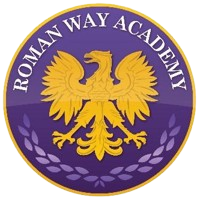Year 1 Summer 2025 Curriculum Overview
|
Subject |
Teaching and Learning |
Parental Involvement- We encourage parents to choose at least one activity for each subject to support your child in their learning. |
|
Maths |
The children will be learning about multiplication and division. They will learn to count in 2s, 5s and 10s, recognise and make equal groups and use arrays. The children will also be learning about the fractions ½ and ¼. They will be finding fractions of an amount and a 2D shape. They will be learning about positions and turns and be using vocabulary like left, right, forwards, backwards, above and below. |
|
|
English (The Curious Quest) |
Writing objectives will be covered through a variety of high-quality texts that will spark the pupils’ interest. The texts will cover poetry, fiction and non-fiction. We will be learning how to use co-ordinating conjunctions (and, but, so) in sentences, using the suffix –ed for past tense regular verbs and using adjectives for description. |
|
|
Reading |
The children will be reading a variety of different types of books in their reading practice sessions that they have at school. They will have 3 sessions a week where we focus on using phonics knowledge to decode the words, read aloud with expression and then comprehension to show what they have understood from the text. The children will then bring home with them the book they have read in class to practice reading it again at home with you. |
|
|
Science |
In science, the children will be looking at the seasonal changes in Spring and Summer. The main unit for science this term is Exploring everyday materials. They will be learning about the properties of different materials and the suitability of materials to make an object. They will also be classifying materials. |
|
|
Computing |
This term, the children will learn to enter information on a spreadsheet. Then they will learn coding where they will create and edit simple programs using code blocks.
|
|
|
RE |
In RE, the children are going to be exploring the question: How do we know that new babies are special? They will look at naming ceremonies and different religious welcoming ceremonies for the birth of a baby focussing on Islam, Hinduism and Christianity. |
|
|
Art |
Paint and Mixed Media: Life in colour The children will explore colour, texture and pattern in paint. They will look at collage work by Romare Bearden and create their own piece of collage.
|
|
|
Design & Technology |
Mechanisms – Wheels and Axles The children will develop and refine their cutting skills and explore different shapes for wheels. They will design and create pull along toys using cardboard, tape and string. Finally, they will apply finishing techniques to decorate and then evaluate their pull along toy against the design brief. |
|
|
PSHE |
This term the children are learning about ‘Citizenship’. This will encompass exploration of rules, how to care for animals and young children and recognise our similarities and differences. We will also identify what being part of a group means and start to understand how democracy works. In the latter half of the term, we will consider what 'Economic Wellbeing’ includes, focussing on what money is, how banks and saving works and why people have jobs. |
Here is some key vocabulary we will be using with the children this term. It would be helpful to talk through these words with your child at home: Citizenship: rule, same, different, need, care, choice, vote Economic Wellbeing: money, bank, job, earn, spend, save
|
|
History |
In history, the children will be learning about ‘What is a monarch?’. In this unit they will identify the qualities of a good monarch, explore the reign of William the Conqueror and how castles changed. |
Here is some key vocabulary we will be using with the children this term: Monarch, constitutional monarchy, government, rule, procession, absolute monarchy |
|
Geography |
In geography, the children will be learning about ‘What is it like to live in Shanghai?’. They will be comparing our local area to Shanghai and learning about China as a country and comparing to England. We will be looking and photos and using google earth to spot features. |
|
|
PE |
Target Games- They will develop the skills of throwing, rolling and striking towards a target. Striking and Fielding- In this unit the children will develop their understanding of the principles of defending (fielding) and attacking (batting). They will be using skills such as throwing, catching, tracking and striking a ball. They will learn to score points in these types of games using simple tactics and by abiding to the rules. Athletics – The children will be running at different speeds, jumping and throwing equipment. They will also measure their performance and compete to improve their own score against others. Swimming – The pupils will learn about water safety and enjoyment of being in the water. They will learn to travel with a float and submerge with increasing confidence. They will begin to learn to use legs and arms to propel them through water. |
Staying active at home will support your child’s progress in PE. Here are some links to follow for some ideas:
|
|
Music |
This half term, the children will do two units called: Dancing and drawing to Nautilus & Cat and Mouse. In the first unit the pupils will do active musical signals, internalise beats, draw to music and movement. In the second unit they will learn about mood, tempo, dynamics, timbre and dot notation.
In the next half term, they will learn about a unit called: Come dance with me which focusses on call-and-response. The pupils will learn echo singing, playing percussion, develop beat skills, crotchet rest and quavers.
|
|
